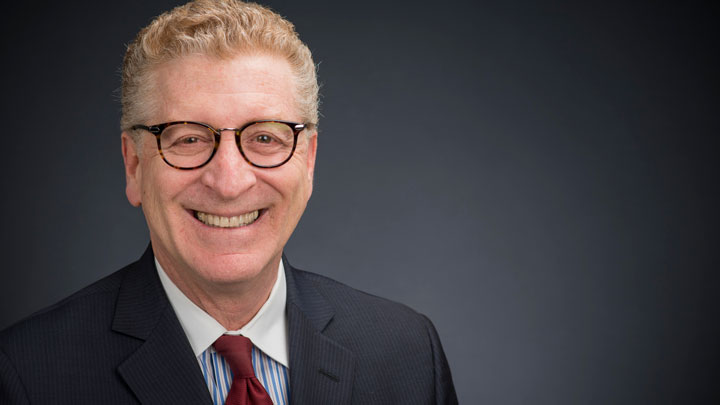Commentary | College Matters: We must sell the value of a college degree
Somers, Wis. – I was the first in my family to attend college. It may not surprise you, given I serve as provost of the University of Wisconsin-Parkside, that I believe in the value of a college degree. I also think we need to do a better job selling the value of college to citizens in Southeastern Wisconsin and beyond.

A college degree offers convincing returns such as better career prospects, higher earnings, and improved health and well-being over one’s lifetime. Yet there is growing debate over the value of college as young people increasingly question whether earning a degree after graduating high school will be more beneficial to their futures than working a full-time job.
College-going rates in southeastern Wisconsin have fallen significantly, and precipitously in our region in the last two years, especially among low-income and students of color. The problem has been worsened by COVID-19, which has created personal and financial challenges for many students and their families. First-generation and marginalized students have been particularly hard hit by the pandemic.
With pandemic-induced constraints on the college experience (e.g., more online courses and fewer out-of-class experiences), strong job prospects in our region, and increasing concerns over the cost of tuition and fees, college has become a tougher sell. There is no doubt that some students are rethinking pursuing a four-year degree.
Nevertheless, there is ample data suggesting that people still value a college degree. For example, a recent study by Gallup and Lumina (The State of Higher Education 2022 Report), shows that 44 percent of individuals without a college degree report they have considered enrolling in a bachelor’s or associate degree, or an industry certificate or program in the past two years. Also, 85 percent of those who were recently enrolled in a certificate or degree program, but stopped out during the pandemic, have considered reenrolling.
Experts argue that college remains a wise choice and few investment strategies yield better returns.
Census data show that our region needs to increase the education attainment of its citizens. Only 26% of Kenosha residents and 25% of Racine residents have a college degree compared to 30% for Wisconsin and 32% for the U.S.
With the proportion of working adults in Wisconsin declining, the number of high school graduates decreasing, and as demand grows for employees with higher education degrees, we realize that the most powerful responsibility we have is to increase education attainment in our region, especially among historically underserved populations. This is why we set the bold goal to increase the number of annual graduates by 50 percent by 2025. As part of our UW-Parkside Strategic Framework , the Bold Goal represents UW-Parkside’s commitment to providing a significantly greater number of highly valued and well-prepared graduates.
We are making progress! The total number of annual graduates from UW-Parkside has hit historic highs in each of the last two academic years (even during the pandemic) - 2019-20 (848); 2020-21 (896). We’re on track to set another record for the 2021-22 academic year as well. The good news for these graduates is that adults with a bachelor's degree earn an average of $2.8 million during their careers, $1.2 million more than the median for workers with a high school diploma, according to a study by Georgetown University’s Center on Education and the Workforce.
What’s more, a 2019 report from the American Enterprise Institute demonstrates that over half of low-income students enrolled at 307 comprehensive universities reached the two highest earner quintiles by their early 30s.
A college degree does not guarantee that all workers will earn more than those with less education. “Other factors—from field of study and occupation to gender, race and ethnicity, and location—drive differences in earnings,” Georgetown researchers found. Still, a postsecondary education, combined with skills and experience, was discovered to be the more reliable path to a high-paying career.
Beyond earning more, college graduates enjoy rich non-monetary benefits including the tendency to be more open-minded, cultured, and rational and to pass on these traits on to subsequent generations, according to research from the Center for the Study of Higher and Postsecondary Education at the University of Michigan. Other published research documents a positive relationship between completing a higher education and good health for oneself and one’s children.
In just a few weeks, UW-Parkside will confer degrees to another record graduation class. One of the pleasures I take in Commencement is watching students walk across the stage, knowing that they are leaving UW-Parkside well-equipped to succeed in their personal and professional lives. Celebrating their graduation is an important reminder of the vital role higher education plays in fostering economic opportunity and upward mobility for citizens in Southeastern Wisconsin.
Considering the exceptional lifetime and societal benefits of a post-secondary degree, we, at UW-Parkside, are committed to ensuring that more students make it across the finish line to degree completion.
Media contact:
Tannette Elie
Executive Director of University Relations
University of Wisconsin-Parkside elie@uwp.edu